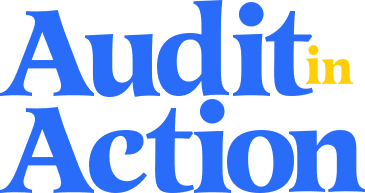Diversifying the Accounting Talent Pipeline: What Does the Research Say?
Audit quality is driven by talent quality, and the accountant shortage is a critical challenge that could have significant impacts on our US capital markets. To better understand the challenges the profession faces in bringing the next generation of talent into the accounting pipeline, the Center for Audit Quality researched student drivers and barriers to choosing to pursue a degree in accounting.
The report, Increasing Diversity in the Accounting Profession Pipeline: Challenges and Opportunities, July 2023, builds upon the CAQ’s research conducted in partnership with Edge Research from January 2022 and helped us to gain deeper insight into why undergraduate students may choose not to pursue a degree in accounting, and why or why not accounting majors choose to pursue CPA licensure after graduating.
We identified many key findings:
- The most significant barriers to majoring in accounting are a lack of interest or passion for the topic (which was partially attributed to negative experiences in introductory-level classes), higher starting salaries in other majors, and students being turned off by the monetary costs and time needed to complete the 150 credit hours required for licensure.
- While the 150-hour requirement is a top barrier across the board, it is even more prounounced for Black and Latino students, resulting in these students opting out of accounting at higher rates.
- CPA licensure is overwhelmingly the end goal for students who are majoring in accounting. This is largely due to the expectation that achieving licensure will aid career development and ensure higher salaries.
- While most accounting majors are committed to pursuing the CPA license, more needs to be done to support Black and Latino students. By improving access to structural supports like mentorship and financial assistance we can make a significant impact on these underrepresented communities in the profession.
- For graduates, employers can do more to improve the work experience as it relates to work/life balance and entry-level compensation. The research indicates that Black graduates experience lower levels of satisfaction with organizational culture.
The findings are significant and provide the profession with actionable insights that can help to remove top barriers to entry for top talent. The findings also reinforce actions many states are already taking, including adjusting the 150-hour rule. For example:
- Indiana joined the majority of states by allowing students to sit for the CPA exam after 120 hours of study.
- Oklahoma also passed legislation lowering the hour threshold to 120.
- The Minnesota Society of CPAs proposed new legislation allowing young accountants to achieve CPA status without needing 150 hours of college credit.
There continues to be a need for collaboration and creativity to address the shortages and challenges our profession faces. This report is a part of our broader effort to increase diversity within accounting and highlight actions that our stakeholders can take to attract new talent to the profession. The data shows we still have much more work to do in increasing awareness and improving perceptions about accounting as career choice. We are taking these learnings and building them into our multi-year, collaborative, data-driven Accounting+ campaign. We are making progress but there’s still a long way to go and the Center for Audit Quality is committed to being a leading voice in realizing the opportunities we are presented with.

